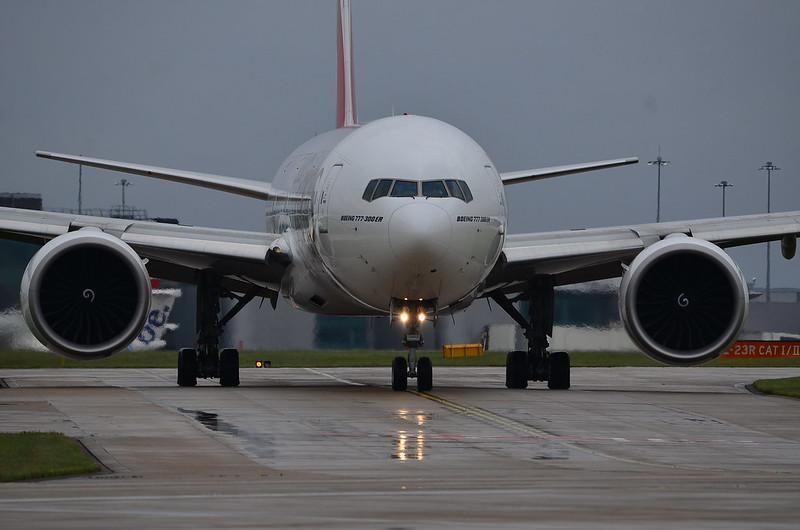
AerFin has added the Boeing 777-300ER aircraft to its portfolio for the first time and will place parts and materials from the aircraft into its component customer pool.
The widebody aircraft is currently being dismantled in Tarbes, France by the company’s teardown partner Tarmac Aerosave and will target customers operating the aircraft type.
Auvinash Narayen, SVP commercial and asset management at Caerphilly, Wales-headquartered AerFin, says the utilization rates of the aircraft type during the past 12 months amidst the COVID-19 crisis was a factor in its decision to grow its portfolio.
“The 777-300ER was the widebody work horse during the pandemic with the highest utilization relative to other widebody aircraft, driven by high freight demand which will continue to play a significant role during and beyond the pandemic,” Narayen says.
Demand on specific types of parts is mirroring those of AerFin’s primary narrowbody and regional aircraft types in areas such as landing gear and auxiliary power units. Post-pandemic, Narayen believes the industry will see an overwhelming demand for used serviceable materials that even in the event of a spike in aircraft retirements, will be hard to satisfy.
Nevertheless, due to freight and passenger demand, Narayen believes that the 777-300ER is unlikely to see significant retirements on the horizon--subject to certain scenarios.
“In the short-term, we don’t expect to see a wave of retirements. However, this is very much dependent on the pandemic and how it influences the market conditions,” he says. “If current restrictions on global travel remain in place for the foreseeable future, then the cargo market will continue to drive the market and the 777-300ER is a key player.”
He adds: “With restrictions on international travel expected to be lifted later this year and with an increase in passenger numbers, routes and airline schedules, one would expect retirements to lessen.”
The 777-300ER is expected to have longevity, with no retirements forecast by Aviation Week’s Fleet & MRO Forecast data until nearer the end of the decade. By 2030, 14 of the aircraft type are expected to be phased out.
Interest is also growing in the aircraft as a freighter option following GECAS-Israel Aerospace Industries establishing a passenger-to-freighter conversion program in 2019.





